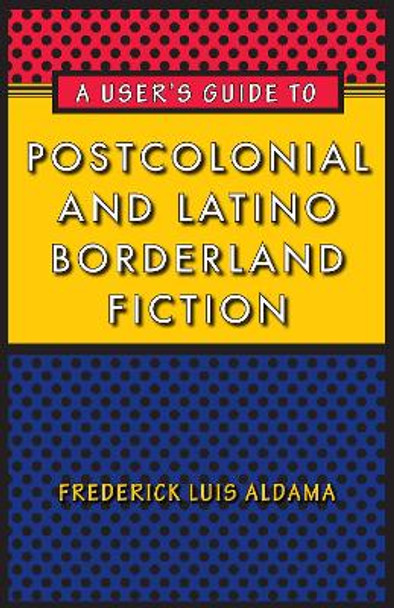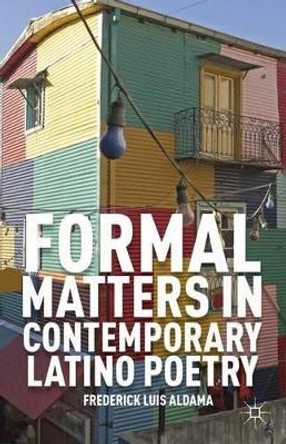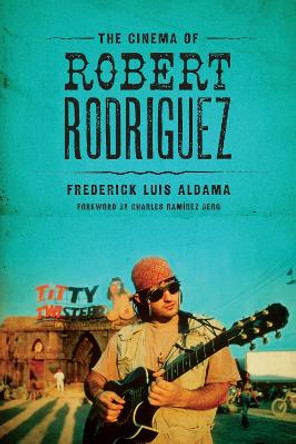Description
Why are so many people attracted to narrative fiction? How do authors in this genre reframe experiences, people, and environments anchored to the real world without duplicating "real life"? In which ways does fiction differ from reality? What might fictional narrative and reality have in common-if anything?
By analyzing novels such as Arundhati Roy's The God of Small Things, Amitav Ghosh's The Glass Palace, Zadie Smith's White Teeth, and Hari Kunzru's The Impressionist, along with selected Latino comic books and short fiction, this book explores the peculiarities of the production and reception of postcolonial and Latino borderland fiction. Frederick Luis Aldama uses tools from disciplines such as film studies and cognitive science that allow the reader to establish how a fictional narrative is built, how it functions, and how it defines the boundaries of concepts that appear susceptible to limitless interpretations.
Aldama emphasizes how postcolonial and Latino borderland narrative fiction authors and artists use narrative devices to create their aesthetic blueprints in ways that loosely guide their readers' imagination and emotion. In A User's Guide to Postcolonial and Latino Borderland Fiction, he argues that the study of ethnic-identified narrative fiction must acknowledge its active engagement with world narrative fictional genres, storytelling modes, and techniques, as well as the way such fictions work to move their audiences.
"Frederick Aldama's book seeks to transform the teaching of ethnic and postcolonial literature. Fusing borderland and postcolonial fiction as constituent elements of Anglophone world literature, Aldama's work flies in the face of conventional categories with energy and originality. Aldama's embrace of human universals of language and emotion, his resistance to strictures of identity, his sensitivity to historical contexts of creation and reception, and his respect for the autonomy of fictional worlds establish the ethical power of borderland and postcolonial narrative. Yet Aldama argues that fiction should not be bent to the purposes of political argument at the cost of interfering with the invitation to intense empathetic response and the unleashing of readers' world-creating imaginations. He rescues for literary study and for the humanities a core purpose of narrative world-making: the safe experiment with volatile materials." -- Suzanne Keen, Washington and Lee University, author of Empathy and the Novel "In Aldama's eloquent exploration of postcolonial and Latino fiction-novel, short story, comic book-we find concepts, arguments, and analyses that increase our pleasure as readers of Zadie Smith, Arundhati Roy, Hari Kunzru, Amitav Ghosh, Dagoberto Gilb, Luis Rodriguez and a whole lot of comic book authors-finally!-that lead us to know and inhabit new intellectual territories. This book is for all authors, readers, and critics interested in postcolonial and Latino fiction and, most significantly, it is a daring journey into the Latino and postcolonial fictional mind." -- Monica Brown, Northern Arizona University, author of Gang Nation: Delinquent Citizens in Puerto Rican, Chicano, and Chicana Narratives
About the Author
Frederick Luis Aldama is Arts and Humanities Distinguished Professor of English at the Ohio State University.
Reviews
"Frederick Aldama's book seeks to transform the teaching of ethnic and postcolonial literature. Fusing borderland and postcolonial fiction as constituent elements of Anglophone world literature, Aldama's work flies in the face of conventional categories with energy and originality. Aldama's embrace of human universals of language and emotion, his resistance to strictures of identity, his sensitivity to historical contexts of creation and reception, and his respect for the autonomy of fictional worlds establish the ethical power of borderland and postcolonial narrative. Yet Aldama argues that fiction should not be bent to the purposes of political argument at the cost of interfering with the invitation to intense empathetic response and the unleashing of readers' world-creating imaginations. He rescues for literary study and for the humanities a core purpose of narrative world-making: the safe experiment with volatile materials." Suzanne Keen, Washington and Lee University
Book Information
ISBN 9780292725775
Author Frederick Luis Aldama
Format Paperback
Page Count 208
Imprint University of Texas Press
Publisher University of Texas Press
Weight(grams) 454g






